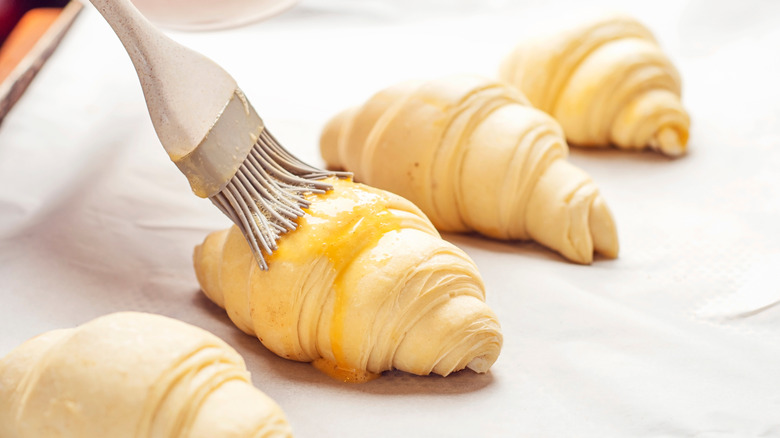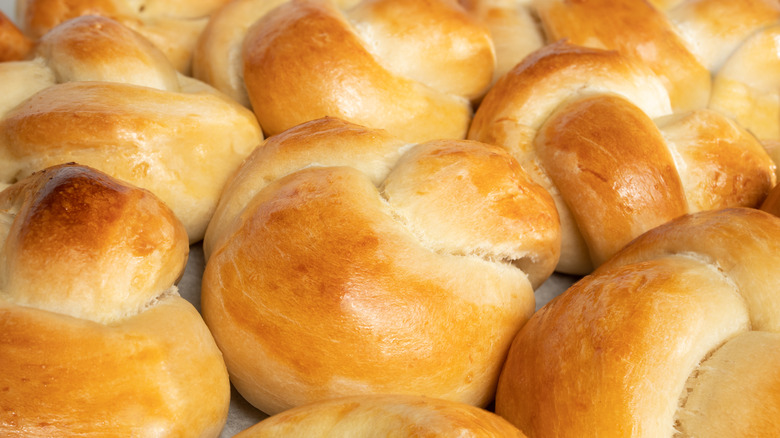Stop Substituting Butter For Egg Wash. Here's Why
If you're finishing up your latest pastry creation and realize that you've run out of eggs, you may think an easy fix is to simply forgo your egg wash in exchange for melted butter. After all, there's already butter in the pastry, so it shouldn't be a problem, right? That is where you would be wrong — even if your fridge is full of fancy butter brands. Although butter is nice and fatty, like egg yolks, and falls into the same "wet ingredient" category as eggs, these two ingredients have incredibly different effects on your baked goods.
According to talk on AskingLot, there are three main occasions to use an egg wash: coating meat in breading, browning and crisping pastries and breads, and getting toppings like nuts, seeds, or crumbles to stick to the top of baked treats. Depending on what you're using the egg wash for, different substitutes may be more suitable than others. If you are using it for breading fried food, Asking Lot users say that butter will absolutely not work as a replacement for egg wash because it will melt when exposed to high heat, running off the breaded item completely. Similarly, butter's tendency to melt makes it a less-than-ideal egg wash substitute for sealing empanadas or sticking toppings on buns.
Other substitutes can work better than butter
The most common use for an egg wash is to brown the tops of pies, pastries, and other baked goods. According to experiments done by sites like Kitchn, treats baked without egg wash look much paler and almost unfinished compared to those that have been brushed with beaten egg for a deep golden color. The Los Angeles Times notes that butter can still be used as a "wash," but it yields different results than egg: Instead of imparting color or crispness, it offers a more luxurious flavor and softness. This means that you could try butter as a substitute for egg wash in some circumstances, such as if you're making a pastry that is not meant to be particularly crispy and might benefit from an extra buttery taste. Plus, according to Our Everyday Life, butter will add shine to pastries, making them look more complete than unglazed ones.
However, Our Everyday Life recommends milk as a better alternative than butter if you're looking for browning. Like eggs, milk contains a higher level of protein, which will act as a binding agent for breading or toppings and make your crust crispier and more golden than butter will. And if you'd rather substitute vegan ingredients in your baked goods, then Tastessence also suggests molasses, maple syrup, or almond milk as options for a brown crust, although they will add extra flavors to the finished product.

